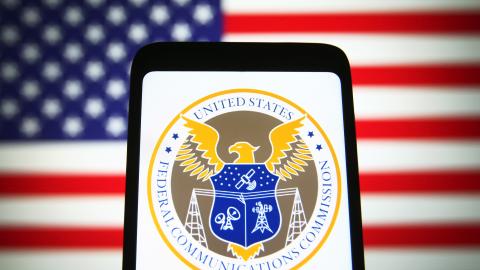Last month, the House and Senate reached an agreement to keep the federal government open through March. With the national debt reaching more than $34 trillion and an average of at least $2 trillion in deficits under current spending in the next decade, it was a hopeful sign that Congress is finally taking fiscal restraint seriously.
Such hope, however, may be more optimistic than realistic.
Emergencies occur that may require spending. Such is the case for emergency foreign military aid working its way through Congress. Not specifically part of the January budget deal, its price tag is approximately $95 billion without any spending offsets.
Congress is also considering new, non-emergency spending programs that would exacerbate the federal deficit. Some of these programs have a demonstrable history of not working as intended or espoused.
Consider the Affordable Connectivity Program, or ACP for short. The program is scheduled to end soon. With the support of the White House, a $7 billion spending bill has been introduced in the Senate to provide additional funding for ACP through the end of the year. The spending associated with this bill is not part of the Congressional budget agreement.
Before the COVID pandemic, the rollout of broadband service in America was widely viewed as a success and largely achieved without federally-appropriated funds. American broadband providers created a private-sector engine for economic and technological growth both in America and around the world. While the Federal Communications Commission administered the Universal Service Fund primarily focused on rural America, no serious, widespread discussion suggested that America’s private broadband networks broadly required sustained infusions of federally-appropriated funds to stay afloat.
That perception changed with COVID. Initially passed in 2021, ACP had a budget of $3.7 billion to help families, often confined to their homes, pay for broadband connections during the COVID pandemic. Congress has appropriated an additional $14 billion to the program since then. The Federal Communications Commission manages ACP.
The COVID pandemic is over, but ACP is not. Worse, the ACP is documented to be poorly-managed and ineffective. According to the Government Accountability Office, the FCC’s management of ACP is susceptible to fraud. The Office of the Inspector General of the FCC casts further doubts on management of the program, particularly noting that many ACP recipients had federal funding available from other sources and that funding was not prioritized for households without any broadband service.
It gets even worse. According to the FCC, approximately 80 percent of ACP recipients already had broadband service before receiving this federal subsidy. Therefore, broadband access for most households under ACP would be little changed without the program.
The federal government has other programs designed to help provide broadband services to needy Americans in a more targeted manner. The FCC’s Universal Service Fund Program spends approximately $8 billion annually to that end. The FCC also administered the Rural Development Opportunity Fund in 2020 to provide broadband to unserved areas of the country. The Department of Commerce’s NTIA is managing a $42 billion Broadband Equity, Access, and Deployment Program to unserved Americans. And both federal and state governments have many programs that more broadly provide benefits and services to low-income households.
Perhaps, despite myriad government programs for broadband and other targeted needs—including TANF, SNAP, WIC, Medicaid and SSI, among others—narrow gaps in America’s safety net remain. The solution to this problem would be a narrowly-targeted program for those gaps, not ACP. There is no bill in Congress to identify, much less address, those narrow gaps.
If Congress were to pass an extension of ACP, it would reveal a lack of confidence in the American social safety net and the many programs that comprise it. Worse, it would reveal that Congress believes that the best use of hard-earned tax-payer dollars is a program that has failed to meet basic good-government criteria and that has failed to demonstrate meaningful, sustained changes for most covered households. An extension of ACP this year is a precursor of an extension of ACP next year. Simply put, it would become a large, permanent new entitlement program that largely does not help provide broadband access to those that currently do not have it.
With a $34 trillion national debt that continues to grow with no end in sight, the federal government can ill afford the luxury of wasting money. Additional wasteful spending on ACP would harm America in many ways. It would create a regrettable legacy and impermissible burden to pass to our children. It would also limit our ability to respond to true crises through the raising of additional debt—crises which invariably arise throughout history. Worst of all, it would signal a lack of confidence in the private sector to provide a market for broadband services to the public without government support.
Lesser countries may lack confidence in their private sectors, but America must not. America is at its best when the ingenuity of entrepreneurs and innovators meet the robust demand of consumers. Our broadband networks were built with private funds and services are eagerly purchased with private funds. To believe in the necessity of ACP is to believe in the myth that the private sector has failed, and that, consequently, the American economic experiment has failed.
This myth is false.




















